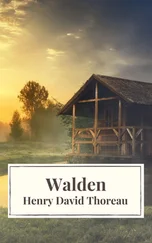If we will admit time into our thoughts at all, the mythologies, those vestiges of ancient poems, wrecks of poems, so to speak, the world's inheritance, still reflecting some of their original splendor, like the fragments of clouds tinted by the rays of the departed sun; reaching into the latest summer day, and allying this hour to the morning of creation; as the poet sings:—
"Fragments of the lofty strain
Float down the tide of years,
As buoyant on the stormy main
A parted wreck appears."
These are the materials and hints for a history of the rise and progress of the race; how, from the condition of ants, it arrived at the condition of men, and arts were gradually invented. Let a thousand surmises shed some light on this story. We will not be confined by historical, even geological periods which would allow us to doubt of a progress in human affairs. If we rise above this wisdom for the day, we shall expect that this morning of the race, in which it has been supplied with the simplest necessaries, with corn, and wine, and honey, and oil, and fire, and articulate speech, and agricultural and other arts, reared up by degrees from the condition of ants to men, will be succeeded by a day of equally progressive splendor; that, in the lapse of the divine periods, other divine agents and godlike men will assist to elevate the race as much above its present condition.
But we do not know much about it.
Thus did one voyageur waking dream, while his companion slumbered on the bank. Suddenly a boatman's horn was heard echoing from shore to shore, to give notice of his approach to the farmer's wife with whom he was to take his dinner, though in that place only muskrats and kingfishers seemed to hear. The current of our reflections and our slumbers being thus disturbed, we weighed anchor once more.
As we proceeded on our way in the afternoon, the western bank became lower, or receded farther from the channel in some places, leaving a few trees only to fringe the water's edge; while the eastern rose abruptly here and there into wooded hills fifty or sixty feet high. The bass, Tilia Americana , also called the lime or linden, which was a new tree to us, overhung the water with its broad and rounded leaf, interspersed with clusters of small hard berries now nearly ripe, and made an agreeable shade for us sailors. The inner bark of this genus is the bast, the material of the fisherman's matting, and the ropes and peasant's shoes of which the Russians make so much use, and also of nets and a coarse cloth in some places. According to poets, this was once Philyra, one of the Oceanides. The ancients are said to have used its bark for the roofs of cottages, for baskets, and for a kind of paper called Philyra. They also made bucklers of its wood, "on account of its flexibility, lightness, and resiliency." It was once much used for carving, and is still in demand for sounding-boards of piano-fortes and panels of carriages, and for various uses for which toughness and flexibility are required. Baskets and cradles are made of the twigs. Its sap affords sugar, and the honey made from its flowers is said to be preferred to any other. Its leaves are in some countries given to cattle, a kind of chocolate has been made of its fruit, a medicine has been prepared from an infusion of its flowers, and finally, the charcoal made of its wood is greatly valued for gunpowder.
The sight of this tree reminded us that we had reached a strange land to us. As we sailed under this canopy of leaves we saw the sky through its chinks, and, as it were, the meaning and idea of the tree stamped in a thousand hieroglyphics on the heavens. The universe is so aptly fitted to our organization that the eye wanders and reposes at the same time. On every side there is something to soothe and refresh this sense. Look up at the tree-tops and see how finely Nature finishes off her work there. See how the pines spire without end higher and higher, and make a graceful fringe to the earth. And who shall count the finer cobwebs that soar and float away from their utmost tops, and the myriad insects that dodge between them. Leaves are of more various forms than the alphabets of all languages put together; of the oaks alone there are hardly two alike, and each expresses its own character.
In all her products Nature only develops her simplest germs. One would say that it was no great stretch of invention to create birds. The hawk, which now takes his flight over the top of the wood, was at first, perchance, only a leaf which fluttered in its aisles. From rustling leaves she came in the course of ages to the loftier flight and clear carol of the bird.
Salmon Brook comes in from the west under the railroad, a mile and a half below the village of Nashua. We rowed up far enough into the meadows which border it to learn its piscatorial history from a haymaker on its banks. He told us that the silver eel was formerly abundant here, and pointed to some sunken creels at its mouth. This man's memory and imagination were fertile in fishermen's tales of floating isles in bottomless ponds, and of lakes mysteriously stocked with fishes, and would have kept us till nightfall to listen, but we could not afford to loiter in this roadstead, and so stood out to our sea again. Though we never trod in those meadows, but only touched their margin with our hands, we still retain a pleasant memory of them.
Salmon Brook, whose name is said to be a translation from the Indian, was a favorite haunt of the aborigines. Here, too, the first white settlers of Nashua planted, and some dents in the earth where their houses stood and the wrecks of ancient apple-trees are still visible. About one mile up this stream stood the house of old John Lovewell, who was an ensign in the army of Oliver Cromwell, and the father of "famous Captain Lovewell." He settled here before 1690, and died about 1754, at the age of one hundred and twenty years. He is thought to have been engaged in the famous Narragansett swamp fight, which took place in 1675, before he came here. The Indians are said to have spared him in succeeding wars on account of his kindness to them. Even in 1700 he was so old and gray-headed that his scalp was worth nothing, since the French Governor offered no bounty for such. I have stood in the dent of his cellar on the bank of the brook, and talked there with one whose grandfather had, whose father might have, talked with Lovewell. Here also he had a mill in his old age, and kept a small store. He was remembered by some who were recently living, as a hale old man who drove the boys out of his orchard with his cane. Consider the triumphs of the mortal man, and what poor trophies it would have to show, to wit:—He cobbled shoes without glasses at a hundred, and cut a handsome swath at a hundred and five! Lovewell's house is said to have been the first which Mrs. Dustan reached on her escape from the Indians. Here probably the hero of Pequawket was born and bred. Close by may be seen the cellar and the gravestone of Joseph Hassell, who, as is elsewhere recorded, with his wife Anna, and son Benjamin, and Mary Marks, "were slain by our Indian enemies on September 2nd, 1691, in the evening." As Gookin observed on a previous occasion, "The Indian rod upon the English backs had not yet done God's errand." Salmon Brook near its mouth is still a solitary stream, meandering through woods and meadows, while the then uninhabited mouth of the Nashua now resounds with the din of a manufacturing town.
A stream from Otternic Pond in Hudson comes in just above Salmon Brook, on the opposite side. There was a good view of Uncannunuc, the most conspicuous mountain in these parts, from the bank here, seen rising over the west end of the bridge above. We soon after passed the village of Nashua, on the river of the same name, where there is a covered bridge over the Merrimack. The Nashua, which is one of the largest tributaries, flows from Wachusett Mountain, through Lancaster, Groton, and other towns, where it has formed well-known elm-shaded meadows, but near its mouth it is obstructed by falls and factories, and did not tempt us to explore it.
Читать дальше












